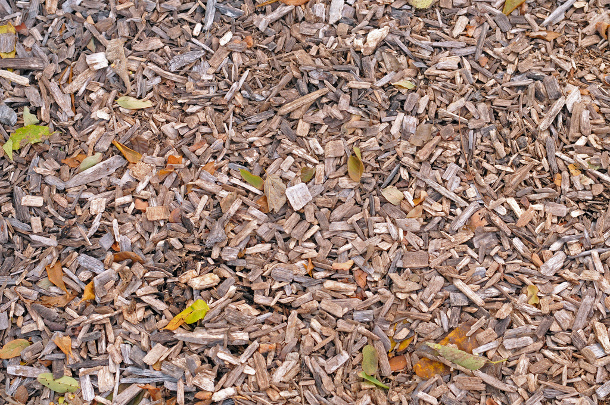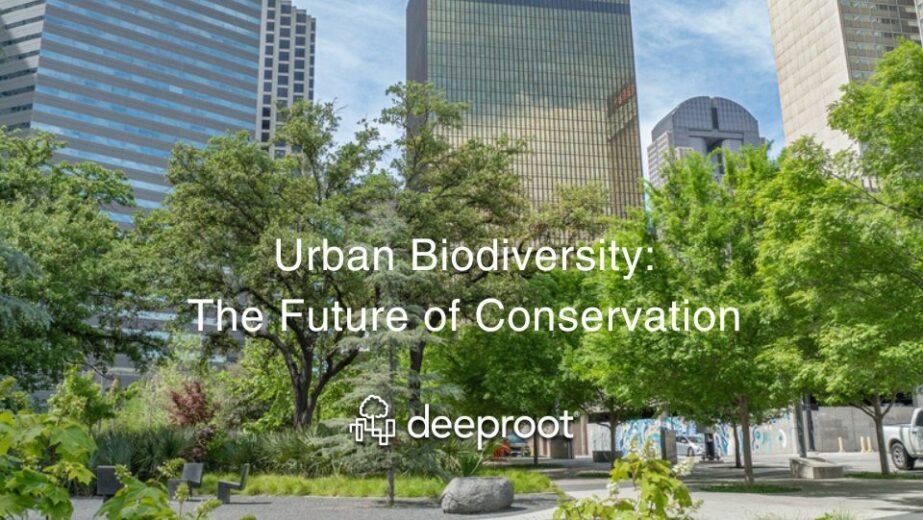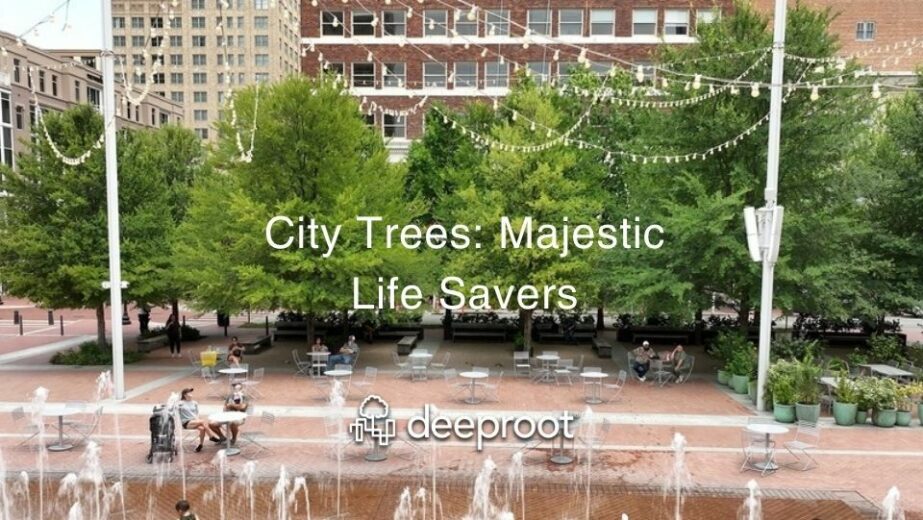In a recent webinar discussing the first principles of using trees and soil for stormwater management in urban areas, I mentioned that I am often not in favor of using mulch. In fact, I said that if it were up to me, mulch would not be included by default in most planting specifications. After the webinar was over I got several questions about why I said that.
Here is my take on mulch. If used for bioretention, the upside is the superior filtering – which, it’s true, may trump the down side. However, there is a big downside, which is that when first put down the mulch floats. In storm events that reach the overflow pipe, clogging from mulch is very common. The second reason I am wary of using mulch is that as it breaks down, the initial impact is the release of lots of phosphorous (P), which is one of the things we are trying to filter out of the water. Bioretention beds are often net contributors of downstream phosphorous. Although this improves with time, it is something we want to minimize whenever possible.
On the soil moisture management side, the mulch absorbs lots of water and actually keeps it out of the soil in a planting bed (see Gilman). This results in plants sometimes rooting in to the mulch rather than the soil. This can make for dry conditions during times of drought. In times of rain, it can create a perched water table; I have seen these go anaerobic when placed over a slowly draining soil. Ed Gilman, Richard Beeson, and Dustin Meador documented this in a controlled study, “Impact of Mulch on Water Loss from a Container Substrate and Native Soil” that was published in Arboriculture & Urban Forestry (2012).
Mulch does have many proven benefits, it’s true. Reduced soil erosion and compaction, temperature maintenance, healthier soil, weed reduction, and improved plant establishment and growth are all positive outcomes of mulching. However, these benefits require using the right kind of mulch (there are plenty that aren’t any good), proper application (no volcanos around tree trunks or 6” deep piles, please), and regular maintenance so that rooting problems, clogging, and water movement don’t interfere with the health of the tree.
In my experience, the potential benefits of mulch when used correctly too often are outweighed by the problems caused by poor application, lack of maintenance, and downstream contribution of phosphorous to waterbodies. Saying I’m against mulch isn’t entirely accurate, but I am against it the way I generally see it being used.
Here are my recommendations for mulching. If you must mulch:
1) Make it a thin layer; 1” (25 mm) is all you ever need.
2) Do not reapply.
3) After the soil consolidates and the plants fill in, you do not need it anymore.
4) Plant ground cover plants close enough to fill in fast.
Works referenced:
Chalker Scott, L. 2007. Impacts of Mulches on Landscape Plants and the Environment – A Review. Journal of Environmental Horticulture 25(4):239-249.
Gilman, E.F., R.C. Beeson, and D. Meador. 2012. Impact of Mulch on Water Loss from a Container Substrate and Native Soil. Arboriculture & Urban Forestry 38(1):18-23.
James Urban, FASLA, is an expert in urban trees and soils. He is the author or the book Up By Roots: Healthy Trees and Soils in the Built Environment.
Flickr credit: Emily Bell (edebell)






It seems you are willing to dismiss a lot of well-documented benefits of mulch for downsides that don’t exist in many situations.
Second, the Gilman study did not measure soil oxygen level. Perhaps you have confused with another study?
Gilman et al. examined surface evaporation associated with mulch cover in a 3-day study in a highly artificial lysimeter system. In contrast, we have seen consistent and significant improvement in soil moisture, plant water relations, and plant growth across multiple seasons in much more realistic field trials.
http://www.hrt.msu.edu/assets/PagePDFs/bert-cregg/Cregg-and-Schutzki.pdf
http://www.hrt.msu.edu/assets/PagePDFs/bert-cregg/cregg-et-al-2009.pdf
Thanks for your reply, and all good thoughts. As I am sure you realize our world is quite complex and we never have enough data so find ourselves having to make general decisions on lots of things. In case you did not get the drift, I am not opposed to mulch just the blind following that mulch is all good. Nothing even water and oxygen is all good and I can kill plants quickly with too much of either. So just keep doing what you think is best, but every thing in moderation and keep challenging everything we all do.
Hi Jim – Can you clarify, are you “against mulch” just in stormwater management (bioretention, etc) areas, or in all types of planting areas? And is this specific to trees or also shrubs/planting beds in general?
Also, your image shows some wood chip mulch, and you do mention that there are various mulches out there… but can you also clarify which mulches you think are better/worse, and whether you mean just wood chip or bark type mulches or also the coarse or fine compost mulches (which we more commonly use in bioretention here in the Pacific NW)?
Thanks!
Justin: As I am sure you realize our world is quite complex and we never have enough data so find ourselves having to make general decisions on lots of things. In case you did not get the drift, I am not opposed to mulch just the blind following that mulch is all good. Nothing even water and oxygen is all goos and i can kill plants quickly with too much of either. So just keep doing what you think is best, but every thing in moderation and keep challenging everything we all do.
As for the wood chips shown by the blogger instead of real mulch that is the problems with blogs. We lost the editors. Thanks for picking that up.